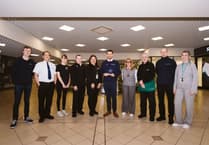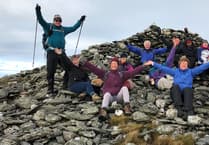While we’re working hard on the Isle of Man to avoid a second wave of the Covid-19 pandemic, we now also need to be on our guard about another possible pandemic - avian influenza (or ’bird flu’).
It can have harmful effects on humans, usually linked to the respiratory tract, and it’s often fatal in birds - be they wild or captive.
Although some bird species such as geese may no show clinical signs of having the disease, infected birds usually present with one of more of the following symptoms:
A swollen head
Blue discolouration of the neck and throat
Loss of appetite
Respiratory distress such as a gaping beak, coughing, sneezing, gurgling, or rattling
Diarrhoea
Fewer eggs laid
Avian influenza isn’t an airborne disease, and it spreads from bird to bird by direct contact or through contaminated body fluids and faeces. It can also be spread via contaminated feed and water or by dirty vehicles, clothing and footwear.
The avian influenza virus changes frequently, creating new strains, and there is a constant risk that one of the new strains may spread easily among people. But there is no evidence that any recent strain of avian influenza has been able to spread directly between people.
There have been several outbreaks of avian influenza in the last month in the UK, with hot spots in Kent and Devon and, much closer to home, western Cheshire.
Migratory wild waterfowl (ducks, geese and swans) and gulls pose a continual threat for the introduction of avian influenza into premises where poultry, game birds, pet and other captive birds are kept. Anyone who keeps poultry must keep a close watch on them for any signs of disease, and must seek prompt advice from their vet if they have any concerns.
Owners of poultry in the UK are being urged to strengthen their bio-security measures in order to prevent further outbreaks. These measures include:
Ensuring the areas where birds are kept are unattractive to wild birds, for example by netting ponds, and by removing wild bird food sources
Feeding and watering captive birds in enclosed areas to discourage wild birds
Minimising movement in and out of bird enclosures
Cleaning and tidying areas where birds live
Disinfecting footwear when leaving bird enclosures, and washing hands thoroughly.
It may only be a matter of time before the Isle of Man is affected by avian influenza, and so owners of birds should start putting extra precautions in place.
However, we should not be deterred from feeding wild birds, particularly at a time of year when they need our help the most. Keeping bird feeders, tables and water bowls clean, and washing your hands thoroughly after you’ve touched them, will help to keep the virus at bay.
If you have an injured or sick bird, wild or captive, please do not take it into a veterinary surgery’s waiting room - keep it outside in a container so that a vet can examine it in the car park. This will minimise the risk of contamination.
On a positive note, Public Health England advises that the risk to public health from the virus is very low and the Food Standards Agency advises that avian influenzas pose a very low food safety risk for UK consumers.
Properly cooked poultry and poultry products, including eggs, are safe to eat.




